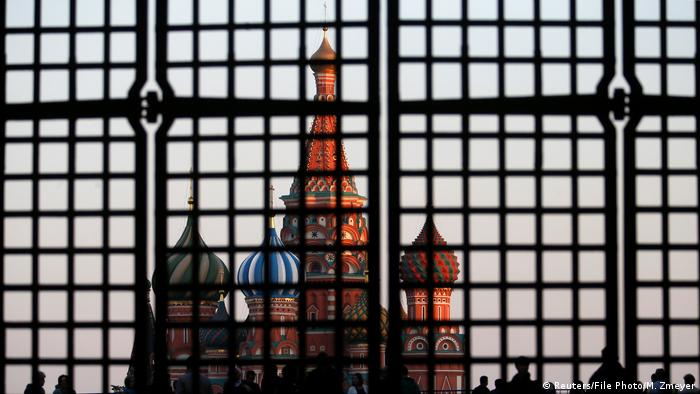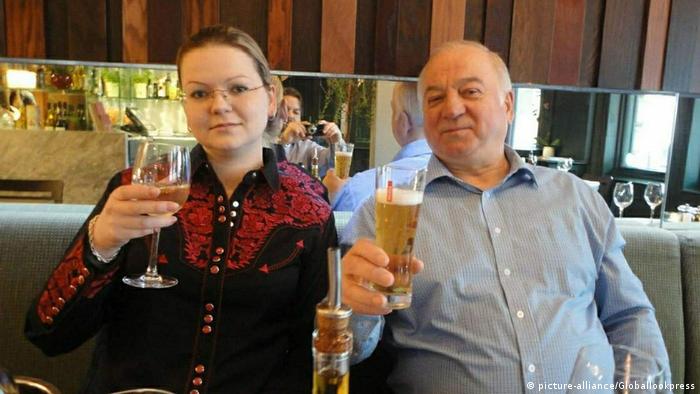Since the annexation of Crimea, Western countries have already decided several times for additional or more stringent sanctions against Russia. The USA and the EU go to the.

Even experts are not able to remember all of the sanctions imposed by the US and the EU against Russia since 2014. The first wave of sanctions came after the annexation of the Ukrainian Peninsula of Crimea, followed by more because of the war in the East of Ukraine, because of the interference in the US elections, as well as due to the If Skripal in the UK. Now there is renewed US sanctions due to electoral manipulation. Against hundreds of Russian officials, politicians and companies, sanctions are in place.
Even before the annexation of the Crimea was perfectly executed, from the United States at the beginning of March 2014, the cooperation with Russia in the areas of investment and the military. But the EU was not in a hurry at the time. This fundamental difference between Washington and Brussels continue to exist until today.
Measures of the USA and the EU
Sanctions of the USA and the EU, there was already a few days after the unrecognized Referendum on the Peninsula in mid-March 2014. Were imposed entry bans against a number of politicians. Also your foreign accounts have been blocked. Among the first on the black list, the Chairman of the Federation Council, Valentina Matvienko, and presidential aide Vladislav Surkov. The ban prevented Surkov, but not to accompany Vladimir Putin in October of 2016, talks on the Ukraine to Berlin.
Tough economic sanctions, it was only after the shooting down of the Malaysian passenger aircraft over the Donbass. At the end of July and beginning of August 2014, the EU and the US have agreed to restrictions on lending to large Russian banks, including VTB and Gazprombank, as well as to several defense companies, for example, the Kalashnikov group. Have been restricted the arms trade and the supply of equipment for the Oil and gas industry. American assets of some Russian companies have been frozen, and US citizens working with you.
The EU was connected to both the softer sanctions because of the annexation of the Crimea – for example, the investment ban and the prohibition on the issuing of visas to inhabitants of the Crimea in the embassies of the EU countries in Russia, as well as tougher sanctions because of the war in the Eastern Ukrainian Donbass. Brussels is extended to you individually every six months, and the United States overall, and once in a year.

War damage in the Eastern Ukrainian Awdijiwka
After the interference in the US elections
Every three to four months, the sanctions have been expanded. Often there was but only sectoral restrictions on the Export, in the case of new technologies or loans. A new qualitative breakthrough there was by the end of 2016. After the US had secret accused of services of Russia in the presidential elections interfered with by they had hacked the Server of the Democratic party, the outgoing government of Barack Obama 35 Russian diplomats, the castle of two Russian diplomatic missions, and sat people associated with the FSB and the Ministry of defence in connection to a black list.
In the summer of 2017, there was the next turning point. The US Congress adopted the “Countering America’s Adversaries Through Sanctions Act” (CAATSA), in which Russia together with Iran and North Korea. The law provided for strict penalties were for the first time in April 2018 applied against the businessman Oleg Deripaska and his companies – primarily against “Rusal”. Here the US acted alone, of the EU, no support came. In some countries, including Germany, said politicians, even the United States would only want their own economic interests prevail. This concerns in particular the Nord-Stream Pipeline 2 from Russia to Germany, which is rejected by the Trump-Administration, against which, however, no sanctions were imposed.
The peculiarity of the CAATSA is that sanctions can be imposed against third countries that cooperate with Russia. In this context, for example, the purchase of Russian fighter planes has been made by Indonesia in question.
After the case, Skripal
A new level reached, the sanctions, as the leading Western countries, Russia accused, in March of 2018, tried in great Britain, the former double agent Sergei Skripal and his daughter with the nerve poison “to kill Nowitschok”. The United Kingdom and the United States recorded dozens of Russian diplomats. With a so-called first package of measures in the case Skripal prohibited the United States at the end of August, among other things, the provision of foreign aid for Russia, with the exception of humanitarian aid, as well as the sale of arms and services in the field of defence.

Sergei Skripal and his daughter, Julia, before their poisoning
Although were expelled from the EU, Russian diplomats, but further economic sanctions against Russia were not imposed. In October 2018, the EU countries agreed on a new legal framework for future sanctions against Russia in case Skripal. About concrete measures is not known. Brussels is more time than Washington.
Due to Russia’s support of the Syrian leadership there was on the part of the United States in 2018, more, but smaller sanctions. Including against companies of Evgenie Prigoschin. The business man in the USA with the so-called Russian “Troll factory” and their interference in the US elections. He is stuck also behind the private army, known as the “group Wagner”,. Washington imposed in addition to sanctions against companies involved in the construction of the bridge from the Russian mainland to Crimea.
The latest US measures are justified, among other things, with interference in the last U.S. presidential election, a hacker attack on the world Anti-doping Agency as well as with other “malicious activities”.
Today, everyone within the ruling Russian elite is almost more or less affected by U.S. sanctions. On the black list of both known major banks and companies of Sberbank to Rosneft, as well as little-known companies or research institutes in the Russian province. The list of the EU is much shorter, but it is constantly expanding.